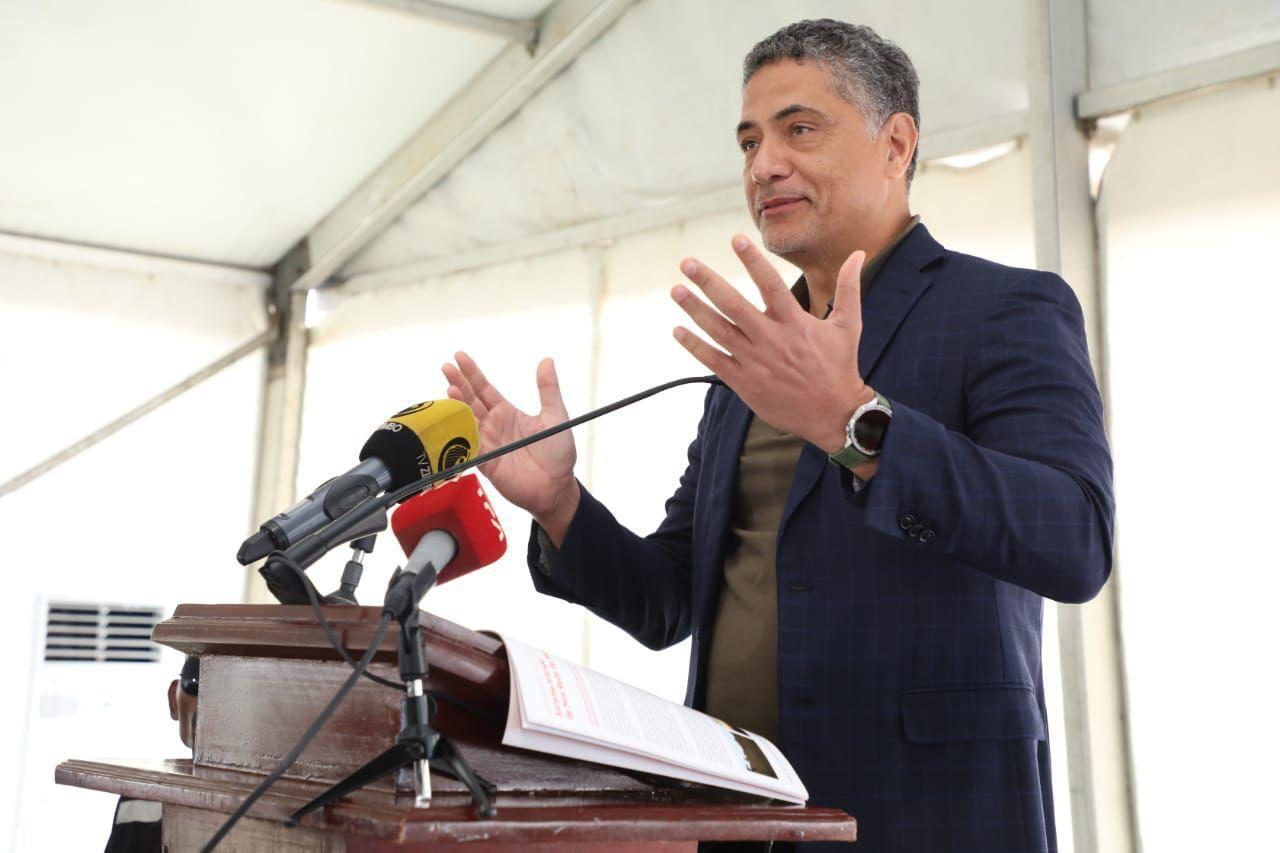On Thursday, June 20, 2024, in Macau, Minister of Energy and Water João Baptista Borges underscored the significance of the Forum as a key opportunity to showcase major Energy and Water sector projects to the attending financial institutions and to engage in discussions with government officials from the People’s Republic of China.
Full Speech by the Minister:
Your Excellency Mr. Ho Iat Seng,
Chief Executive of the Macau Special Administrative Region, People’s Republic of China;
Honorable Representatives of Diplomatic Missions and International Organizations accredited to the People’s Republic of China;
Esteemed Mr. Fang Qiuchen,
President of the China International Contractors Association;
Executive Directors and Senior Officials from Public, Private, and Financial Institutions;
Firstly, on behalf of the Angolan government, I would like to extend our deep appreciation for the invitation to participate in the 15th Edition of the International Infrastructure Investment and Construction Forum (IIICF) in Macau/China, under the theme “Green Innovation, Digital Connectivity.” This forum brings together entrepreneurs from Angola and China, creating opportunities to foster the social and economic development of our two nations, which share a long-standing history of friendship and cooperation.
Secondly, I would like to commend this initiative, which is highly significant for the China-Angola relationship. It takes place at a critical time in the development of our ties, especially following the recent visit of the President of Angola to the People’s Republic of China on March 15. This visit resulted in the signing of several bilateral agreements, including the Agreement on the Promotion and Reciprocal Protection of Investments, which serves as a legal framework for enhancing economic cooperation, capital flows, and economic growth between our two countries.
Distinguished guests, Ladies and Gentlemen:
In today’s world, we face immense global challenges, especially in areas such as energy transition and security, water security, innovation, climate change, food security, artificial intelligence, demographics, electromobility, and the development of environmentally sustainable cities. These areas are crucial for economic, scientific, and business collaboration between Angola and China, involving both Chinese public and private sectors.
China is a key strategic partner for Angola, playing a significant role in various sectors of our economy. Notable projects include the construction of dams, water supply systems, roads, ports, airports, railways, technological centers, and schools. Particularly worth mentioning is the ongoing Caculo Cabaça Hydropower Project, which aims to generate 9,000 MW by 2027.
China’s advanced technical and technological capabilities have provided many advantages to African nations, particularly in infrastructure and connectivity. This is evident in China’s Belt and Road Initiative, which has significantly contributed to the industrialization of Africa, making a strong impact on the realization of Africa’s 2063 Agenda for sustainable development.
Distinguished business leaders,
Just under a year ago, Angola marked the 40th anniversary of the establishment of diplomatic relations with China. This was a milestone in our cooperative and fraternal relationship. Since the end of the civil conflict, China has been instrumental in Angola’s national reconstruction and development efforts, and its investment remains critical in the Energy and Water sectors and beyond.
Angola’s 2023-2027 National Development Plan, aligned with the Long-Term Agenda 2050, aims to achieve a total installed capacity of 9,000 MW by 2027 and an electrification rate of 60%, with an investment of approximately USD 23.02 billion. Financial institutions and the private sector are called upon to play a pivotal role in realizing these objectives, presenting numerous opportunities for project financing, direct Chinese investment, company formation, public-private partnerships, inter-company collaborations, and the transfer of technology, equipment, and expertise.
Although most investments in Angola’s electricity sector are currently public, the private sector must view this sector as a lucrative market opportunity, given Angola’s industrial potential, regional economic integration, and domestic consumption needs for a population of about 36 million.
Angola’s energy potential is vast and primarily driven by environmentally sustainable, clean sources. The country’s total energy capacity is estimated at around 60 gigawatts, with 18 gigawatts from hydropower and 17 gigawatts from solar energy. Additionally, Angola has around 900 trillion cubic meters of natural gas reserves, with the potential to generate 17 gigawatts of electricity.
In line with Angola’s constitutionally guaranteed market-based economy, the private sector is expected to take a leading role in diversifying the national energy mix. We strongly encourage direct investment in concessions for energy production, transmission, distribution, and commercialization, as well as the establishment of public-private partnerships and other business collaborations, such as joint ventures. Angola’s legal framework for investment is increasingly attractive, with recent updates including the Private Investment Law, the Public-Private Partnerships Law, the Tax Benefits Code, and the Competition Law.
In addition to the electricity sector, I would like to highlight Angola’s continued efforts to meet the Sustainable Development Goals (SDG 6) through increased investment in water supply and sanitation infrastructure.
For the 2023-2027 period, the Angolan government plans to invest over USD 4 billion in water supply projects, including new systems for water extraction, treatment, and distribution, which will boost the country’s water supply by 1,149 cubic meters per day, especially in Luanda. These projects will connect 1.6 million families to the water supply network.
This financial investment will increase the current per capita water consumption from 40 liters per day to 70 liters per day, advancing Angola’s progress towards achieving the SDGs. As part of these initiatives, the Angolan government has also developed a Drought Mitigation Program for the southern regions of the country. João Baptista Borges João Baptista Borges João Baptista Borges





![Complete BritRail Pass Guide [Types, How to Use It, Pros + Cons]](https://inside-news.uk/wp-content/uploads/2025/06/00221EB4-BCA2-4DBB-6CD4-83DBC37D71FA-120x86.webp)
















